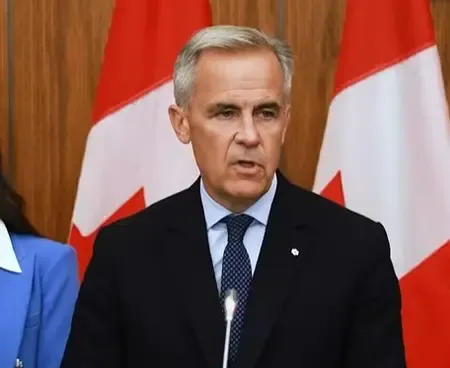Is Trump Really Proposing $1 Billion for Private Mars Exploration Programs?

Synopsis
Key Takeaways
- $1 billion proposed for Mars exploration initiatives.
- Over $7 billion allocated for lunar exploration.
- Introduction of the Commercial Mars Payload Services Program (CMPS).
- NASA funding cut by $6 billion from previous levels.
- Focus on streamlining NASA operations to enhance efficiency.
New Delhi, May 31 (NationPress) In a remarkable advancement for space exploration, the US government under Donald Trump has put forward a proposal for $1 billion in new funding aimed at Mars exploration initiatives.
The White House’s budget plan for 2026, unveiled late Friday, also designates over $7 billion for lunar exploration.
“By allocating over $7 billion for lunar exploration and introducing $1 billion in new investments for Mars-focused programmes, the Budget ensures that America’s human space exploration efforts remain unparalleled, innovative, and efficient,” the Budget document stated.
This funding proposal also introduces a new NASA initiative called the Commercial Mars Payload Services Program (CMPS). Mirroring the earlier Commercial Lunar Payload Services (CLPS) initiative, CMPS aims to utilize private sector expertise and investment for space exploration.
According to the new proposal, NASA will issue contracts to companies working on spacesuits, communications systems, and a human-rated landing vehicle to facilitate exploration of the Red Planet.
Significantly, the budget proposal reduces NASA funding by $6 billion compared to the enacted 2025 levels, decreasing from $24.8 billion to $18.8 billion—a drop of 24 percent.
These budget cuts are substantial for space science ($2.3 billion), Earth science ($1.2 billion), and legacy human exploration systems (almost $900 million).
If approved, NASA initiatives like the Mars sample return and Gateway will be impacted.
“In alignment with the Administration’s goals of returning to the Moon before China and landing a man on Mars, the Budget intends to reduce lower priority research and eliminate missions that are financially unfeasible, such as the Mars Sample Return mission which is significantly over budget and whose objectives could be met through human missions to Mars. The mission is not set to return samples until the 2030s,” the Budget document noted.
It also suggests phasing out the costly and delayed Space Launch System (SLS) rocket and Orion capsule after just three flights.
The document further elaborated that the Budget refocuses NASA on outpacing China in returning to the Moon and placing the first human on Mars. To achieve these goals, it aims to streamline operations, IT services, NASA Center operations, facility maintenance, and environmental compliance activities.









